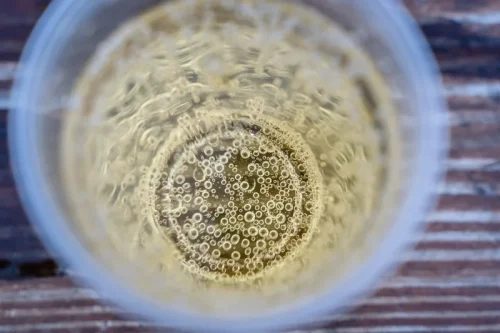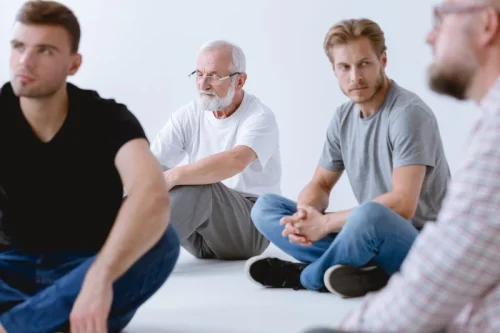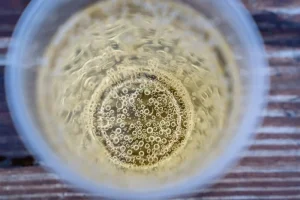
Someone in recovery from alcohol use may experience setbacks because of sleep-related withdrawal symptoms. Alcohol withdrawal insomnia is so common that it is one of the diagnostic criteria for alcohol withdrawal. Insomnia from alcohol withdrawal is likely to persist through the initial period of abstinence.
Circadian Rhythm Disruptions

Researchers have found that insomnia is a risk factor for alcohol abuse. Sleep disorders like insomnia can co-occur with alcohol abuse, and treating insomnia can improve a person’s sleep quality while in recovery. Taking a closer what is alcoholism look at your alcohol use and how it’s affecting your sleep is an incredible step. Cutting back or cutting out alcohol can radically change your sleep quality.
- The homeostatic drive is responsible for keeping our body balanced, and it’s one of the major mechanisms that regulates the sleep-wake cycle.
- This is why a comprehensive approach to treatment is often the key to a successful recovery.
- However, as the alcohol’s effects start to wear off, the body spends more time in light sleep, which is not as sound and may lead to more nighttime awakenings.
- Statistics show that 5.3 percent of all people 12 and older in the U.S. have an alcohol use disorder.
Can You Drink Within Certain Limits?
- These include prescription insomnia medications such as Ambien (zolpidem), Lunesta (eszopiclone), and Sonata (zaleplon).
- Treating anxiety can help reduce insomnia and improve overall sleep quality.
- This article discusses how alcohol affects sleep and the disruptions you might continue to experience after you quit drinking.
- However, the reality is that alcohol has more of an adverse effect on sleep than a positive one.
If you are one of the nearly two thirds of Americans who drink alcohol, chances are, you’ve had a drink in the does alcohol cause insomnia hours before bedtime. Maybe you enjoy a glass of beer or wine after dinner, or your weekends include drinking with friends at bars or social events. However, persistent sleepwalking can lead to daytime fatigue and prevent others from getting a good night’s sleep. See a healthcare provider if sleepwalking involves dangerous activities, happens frequently, or accompanies other symptoms. Diagnosing and treating an underlying condition may help resolve sleepwalking. The prevalence of sleepwalking is higher in people with obstructive sleep apnea, a condition in which you repeatedly stop breathing during the night.

Treatment for Insomnia

Sleep apnea is a common sleep disorder that causes breathing disruptions during sleep. In some cases, a person’s brain doesn’t send the right signals to control their breathing during sleep. In these cases, the problem lies with the throat muscles, which relax too much, partially or fully blocking a person’s airway repeatedly during the night.
Make positive lifestyle changes
Because of drinking’s negative impact on sleep cycles, a person does not sleep as well if they drink before bed. We’re often taught that sleep is something that happens automatically; we exhaust ourselves throughout the day, and then pass out. One of the best things you can do when working to change your sleep and drinking habits is to create an alcohol-free nighttime routine. This can include relaxing activities like taking a hot bath or drinking soothing tea. Another important part of a nighttime routine is maintaining a consistent sleep schedule.
- Your health and wellness is unique to you, and the products and services we review may not be right for your circumstances.
- It should not be used in place of the advice of your physician or other qualified healthcare providers.
- The N3 sleep stage, where we experience slow-wave sleep, is the deepest stage of sleep.
- However, the alcohol will continue to damage their sleep cycles, and the problem will not get better.
- When combined with counseling, this approach is proven highly effective.
People who are using illegal drugs or other substances should not use lorazepam. People with a history of alcohol dependence or abuse should not use lorazepam unless recommended by their doctor. Drinking alcohol or using certain illegal drugs alongside lorazepam can also increase these risks. One 2024 meta-analysis of previous studies found that benzodiazepines were more effective than SSRIs at reducing the physical symptoms of anxiety.

- It can also negatively affect mood, which can, in turn, affect personal relationships.
- Maybe you enjoy a glass of beer or wine after dinner, or your weekends include drinking with friends at bars or social events.
- Such problems can persist for some time even after you decide to quit drinking.
- Research on alcohol and sleep shows that moderate-to-heavy drinking has a detrimental effect on sleep.
- However, you may not think twice about drinking alcoholic beverages, which will also fill your bladder and spark the urge to urinate.
This spike could lead to you tossing, turning, and waking up throughout the night. Alcohol also relaxes your throat muscles, which can worsen snoring and sleep apnea. Likewise, long-term reliance on alcohol for sleep can contribute to an alcohol use disorder (AUD). Drinking a small amount of alcohol may help people fall asleep more quickly initially, but over time, individuals will need to consume more alcohol to achieve the same effect. Binge drinking or excessive alcohol consumption is likely to negatively impact sleep more than light or moderate drinking.

